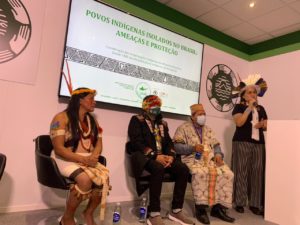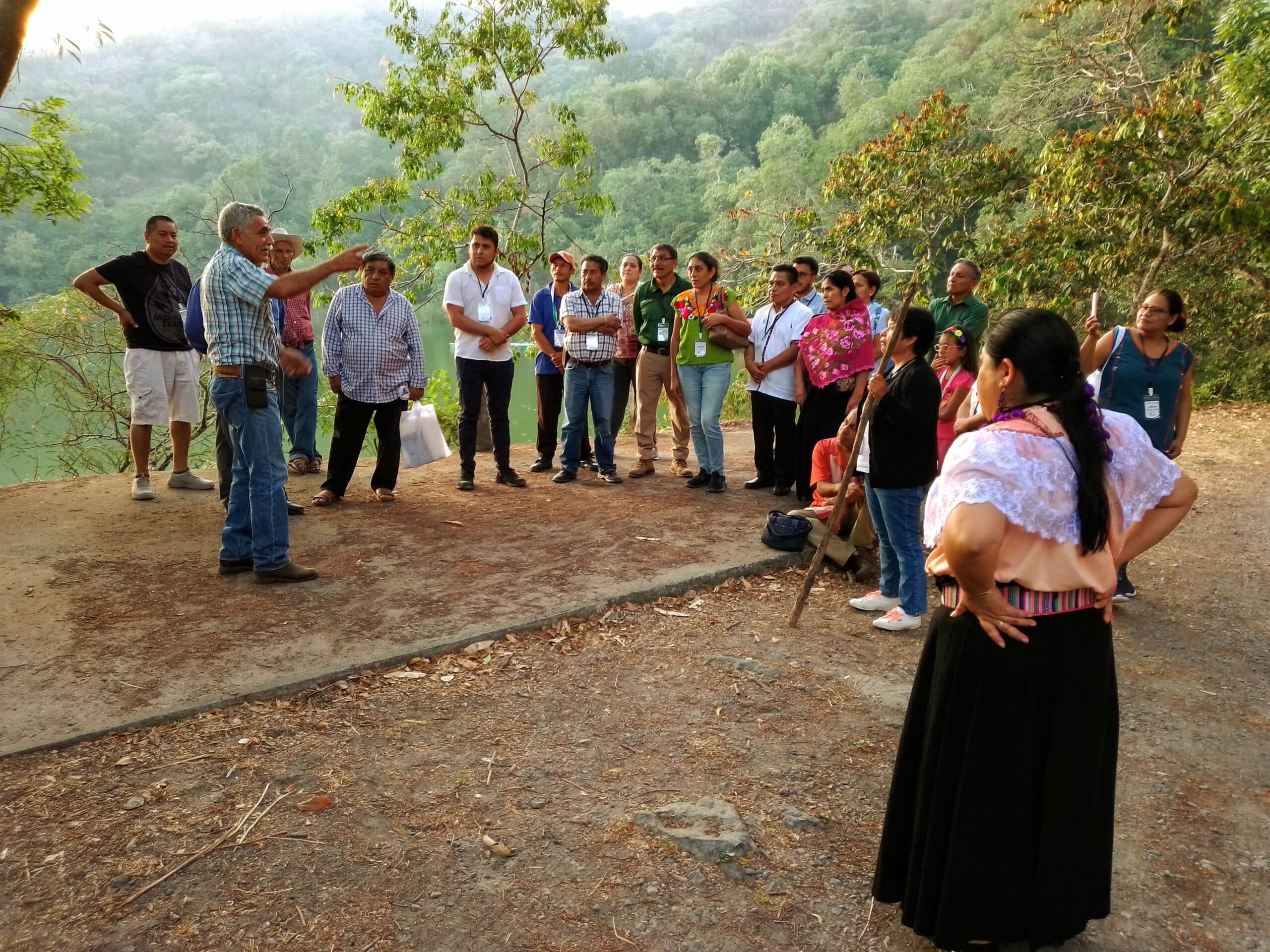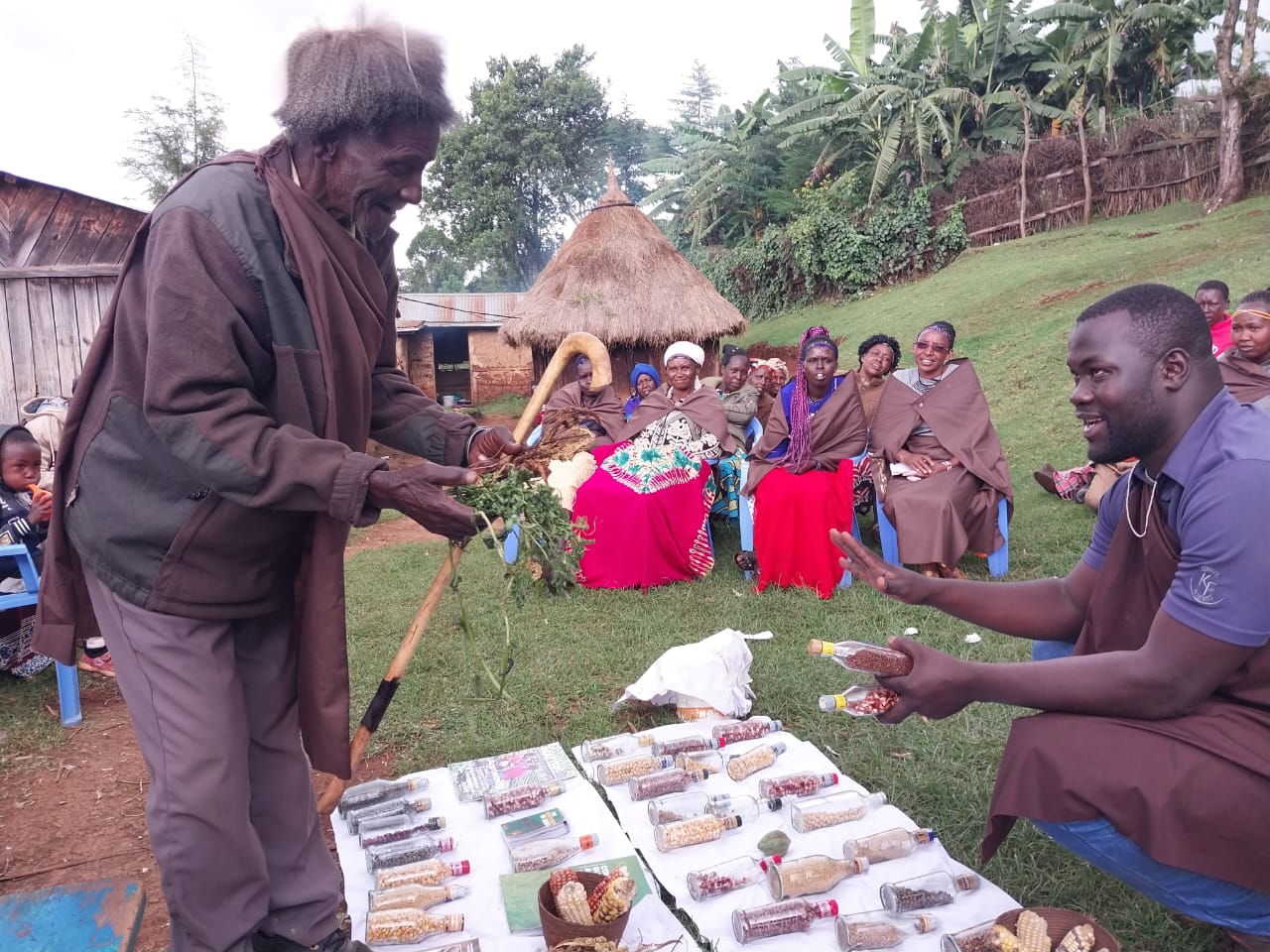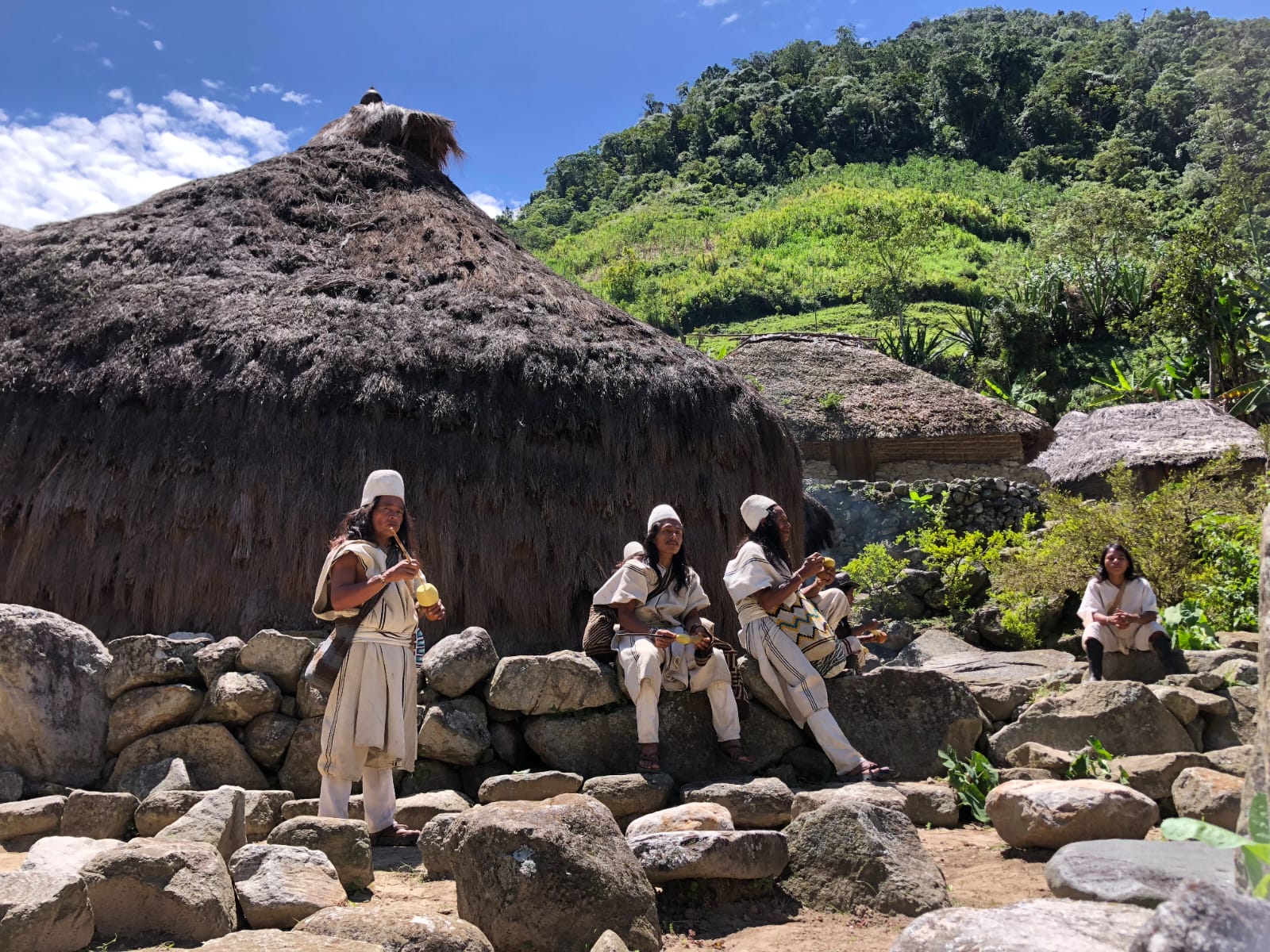As COP26 nears to its close, Land is Life and our delegation has been able to participate in a number of dialogues and events around climate change solutions for Indigenous communities and their territories.
Last Friday, Land is Life, alongside FENAMAD, COICA, and other members of the PIACI Working Group, brought Peoples Living in Isolation to the discussions at COP. The event addressed how the COP26’s 30 by 30 pledge towards ending deforestation must include Indigenous Peoples in the discussion, those who both take care of and depend on the forests for their livelihoods. The side event focused on how special attention should be paid to securing the rights of the most vulnerable – Peoples Living in Voluntary Isolation and Initial Contact (PIACI).
At the side event, we heard from four key leaders of the PIACI Working Group. Julio Ricardo Cusurichi Palacios, President of the Federación Nativa del Río Madre de Dios y Afluentes (FENAMAD), started the panel by stating that the recognition of the rights and the protection of Indigenous Peoples in Isolation are almost entirely lacking in the discussions held at the COP26. Cusurichi emphasized the environmental, social, and cultural vulnerability of the PIACI groups. He noted that Indigenous organizations are constantly working hard on threat monitoring, contact prevention, and emergency assistance; however, much more needs to be done, especially from the state’s side.
“Even though we, the Indigenous Peoples, have governed our territories for thousands of years, we still feel like we are not in an effective position in these big events. When decisions are made, we are pushed aside and given the role of observers. However, as we are supporting the world, this planet, with our territories, we should be where the decisions are made.” –
Julio Ricardo Cusurichi Palacios, President of FENAMAD
Alicia Cahuiya, Leader of the Confederation of Indigenous Nationalities of Ecuador (CONAIE), called on the international community for support in halting the invasion of oil companies on Waorani and Taromenane lands of Ecuador. She emphasized that oil extraction is one of the most alarming threats faced by Indigenous Peoples in Isolation, with 11% of the total surface of indigenous territories in Latin America having been invaded by oil lots. Alicia, on behalf of the Waorani and Taromenane peoples, calls for the international community for support in giving recognition to the territorial rights of the Waorani and Taromenane, Indigenous groups living in voluntary isolation, as the guardians of the forest.
Francinara Baré, the General Coordinator of Coordenação das Organizações Indígenas da Amazônia Brasileira (COIAB) joined the conversation to share specific threats affecting Indigenous Peoples in Isolation within Brazil. Francinara explained how the territories of people living in Isolation are often not considered protected lands in Brazil, explaining that there are at least 40 references of isolated Indigenous that the Brazilian State does not recognize because they are outside Indigenous Land.
“This territory is part of our life, it is not separate. So when it comes to climate, when it comes to environmental preservation, when it comes to preserving indigenous territories, the Amazon forest, you can’t see only the forests, without the people, and especially our relatives who are still in voluntary, free form.” – Francinara Baré COIAB General Coordinator. Brazil
José Gregorio Diaz Mirabal, General Coordinator of the Indigenous Organizations of the Amazon Basin (COICA), closed the event by calling on the international community to take urgent action and establish a program of support for the PIACI, urging for a strong document to safeguard “the lives of our brothers and sisters who are unable to make themselves heard here.”
“The struggle of our brothers and sisters in isolation is the same struggle that we have for our territories, for life, for the rivers, for the mountains, for our children, for our families.” – José Gregorio Diaz Mirabal, General Coordinator of COICA




